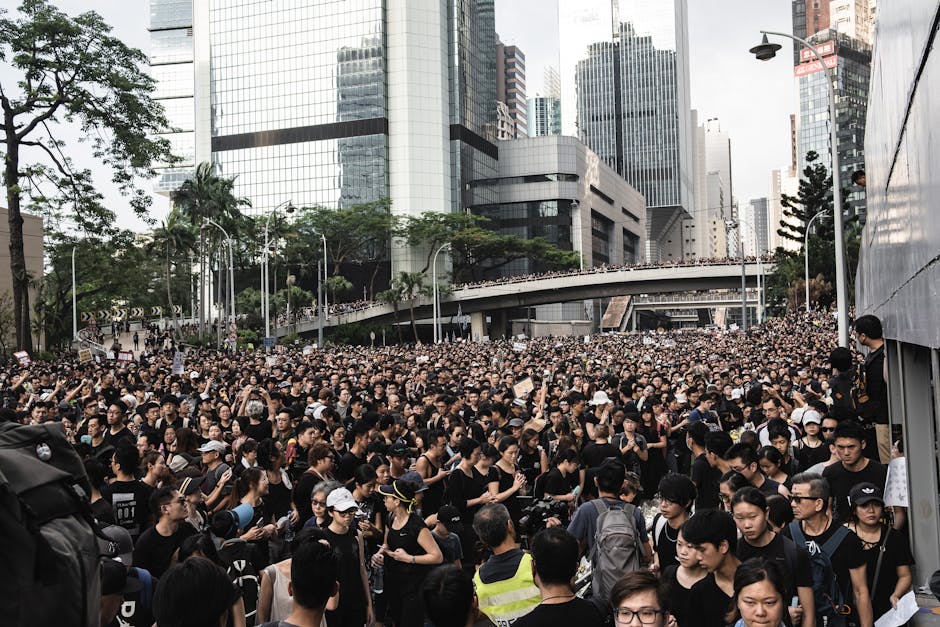[Disclaimer] This article is reconstructed based on information from external sources. Please verify the original source before referring to this content.
Neeews Summary
The following content was published online. A translated summary is presented below. See the source for details.
The efforts to secure the release of Jimmy Lai, the jailed Hong Kong pro-democracy publisher, have global implications for the future of press freedom and political expression in the region. Sebastien Lai, Jimmy Lai’s son, and their international legal team are seeking the Trump administration’s help in securing the release of Jimmy Lai, who is accused of collusion with foreign forces and sedition under a Beijing-imposed national security law. The involvement of the Trump administration and the potential use of targeted sanctions or other diplomatic tools highlight the international community’s commitment to defending these fundamental rights.
Experts, such as Mark Clifford from the Committee for Freedom in Hong Kong, suggested that the U.S. government could use sanctions against Hong Kong officials or shutter the Hong Kong Economic and Trade Offices as a way to push for Lai’s release. Additionally, Mark Simon, who worked with Lai for decades in Hong Kong, argued that releasing Lai may be in Beijing’s interest, as his influence as a dissident is at its height when he is imprisoned.
As the case continues to unfold, the outcome will likely have significant consequences for the future of Hong Kong’s political landscape and its relationship with the rest of the world.
Source: VOA China News
Our Commentary
Background and Context
The case of Jimmy Lai, a prominent pro-democracy publisher in Hong Kong, has drawn significant international attention. Lai, the founder of the now-shuttered Apple Daily newspaper, is currently imprisoned in Hong Kong and accused of collusion with foreign forces and sedition under the Beijing-imposed national security law. His imprisonment is seen as a crackdown on free press and political dissent in the city, which has long been a bastion of democracy and free expression in the region.
Expert Analysis
The involvement of the Trump administration and the potential use of targeted sanctions or other diplomatic tools to secure Lai’s release highlight the global significance of this case. Experts suggest that the U.S. government could use sanctions against Hong Kong officials or shutter the Hong Kong Economic and Trade Offices as a way to push for Lai’s release, which would send a strong message to the Chinese government that the international community is closely monitoring the situation and is willing to take concrete actions to defend the principles of free press and political expression. Additionally, the perspective that releasing Lai may be in Beijing’s interest, as his influence as a dissident is at its height when he is imprisoned, suggests that the Chinese government may need to weigh the strategic considerations as it navigates the delicate balance between its domestic political agenda and its international standing.
Additional Data and Fact Reinforcement
The case of Jimmy Lai is part of a broader crackdown on pro-democracy activists and media outlets in Hong Kong following the implementation of the national security law in 2020. Other prominent figures, such as media tycoon Jimmy Lai and pro-democracy activists Joshua Wong, Agnes Chow, and Ivan Lam, have also been arrested and imprisoned for their involvement in the 2019 pro-democracy protests. These developments have drawn widespread international condemnation and have led to increased tensions between China and Western nations, particularly the United States, which has imposed sanctions on Chinese and Hong Kong officials over the human rights issues in the city.
Related News
The efforts to secure the release of Jimmy Lai are part of a broader global struggle to defend press freedom and political expression in Hong Kong. The potential involvement of the United States, a key global power, in this case could put additional pressure on the Chinese government and the Hong Kong authorities to address this issue and uphold the principles of democracy and human rights that Hong Kong has historically championed.
Summary
The case of Jimmy Lai, the jailed Hong Kong pro-democracy publisher, has become a global flashpoint for the future of press freedom and political expression in the region. The efforts to secure Lai’s release, led by his son Sebastien Lai and his international legal team, have garnered the attention of the Trump administration, which could potentially use targeted sanctions or other diplomatic tools to push for his release. This case highlights the broader crackdown on pro-democracy activists and media outlets in Hong Kong and the international community’s commitment to defending these fundamental rights. As the situation continues to evolve, the outcome of this case will likely have significant implications for Hong Kong’s political landscape and its relationship with the rest of the world.


